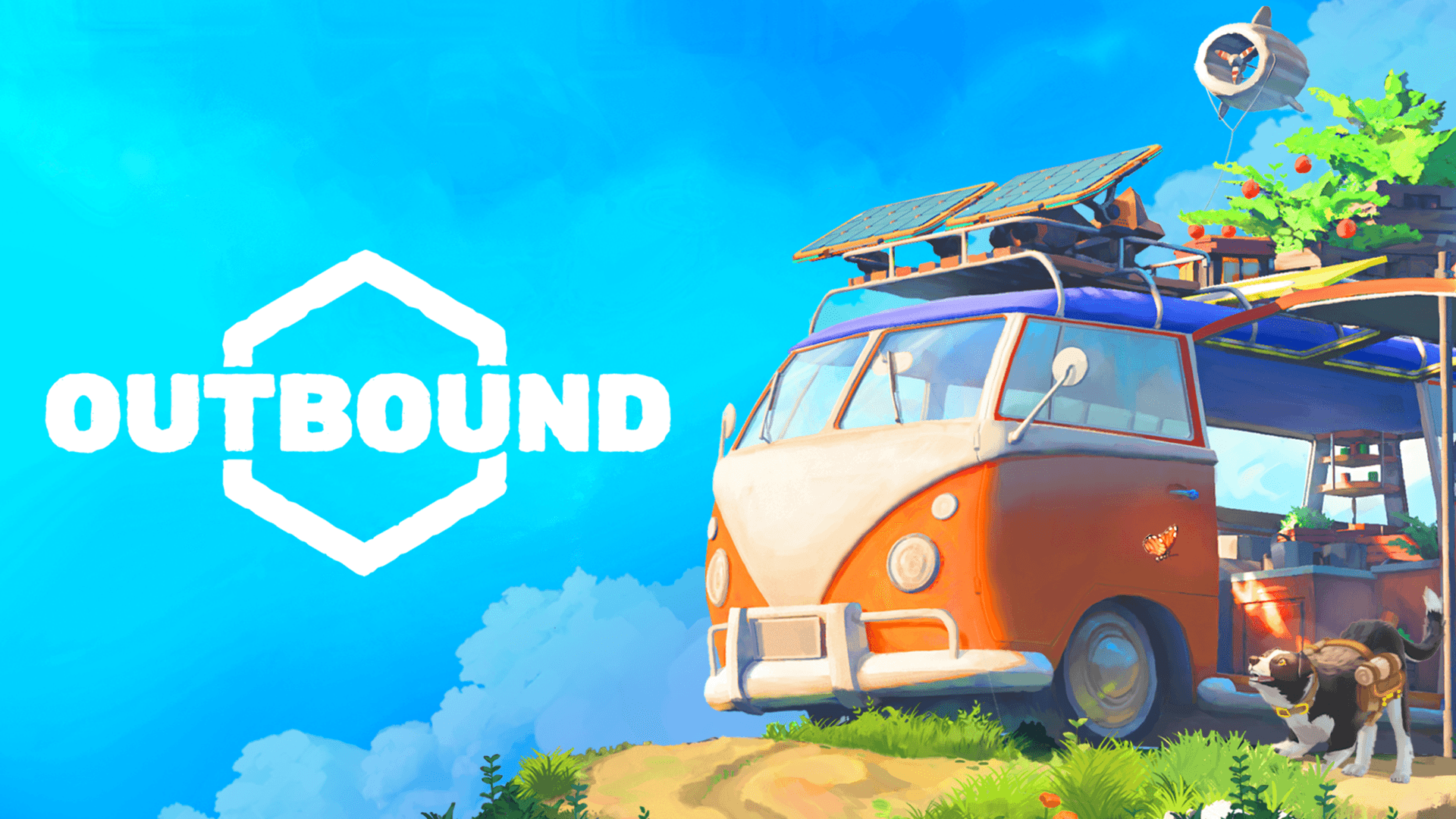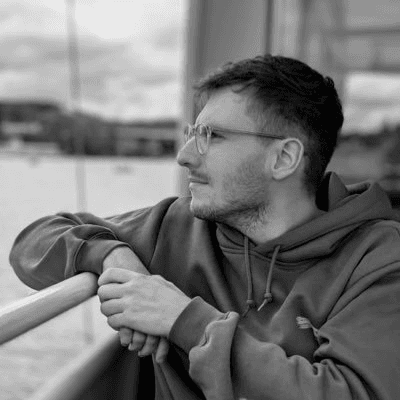Tobias Schnackenberg on Building Outbound
Outbound didn't start as a big idea. It started as one of many prototypes Square Glade built after finishing their first game Above Snakes. We sat down with Tobi and talked about what that process looked like, how they kept cozy gameplay mechanically meaningful, and why a deterministic approach beat physics in their system design.

Add Outbound to your Steam wishlist and be the first to know when this cozy survival adventure launches in 2026
Valentina: I'm so happy we're doing this! Let's start right into it: How did you start working on this game? What sparked the idea?
Tobias: That is a good question. There are actually a few answers to it. One of them is that we probably would not have made a game about campervans if one of our other prototypes had been more successful.
Our first game was Above Snakes, an isometric survival game set in the Wild West. We released it in May 2023. Back then it was just Marc and me at the studio, and we had to decide what to do next. Our approach, and it still is, was simply prototype, prototype, prototype.
We did market research, looked at what was doing well on Steam, and analyzed which games players enjoyed but still reviewed poorly, basically where there might be untapped potential. We took notes on what people said was missing in certain genres, trying to find spaces that were not too crowded.
From there we made several prototypes. One of them was called Cozy World Camper Van Game or something like that.
That one was inspired by our interest in sustainability as a theme. We wanted to explore a utopian world where sustainability actually works, not a dystopia but a hopeful vision. A world where humans and machines live in harmony, where we do not exploit nature anymore but coexist with it.
We combined that with something we saw players wanting in survival-crafting games, the ability to have a mobile base. People loved the idea of taking their home with them.

Tobias Schanckenberg, picture: private
We noticed that Raft did something similar in a way, but the player is mostly static while the world moves around them. You cannot really maneuver much. We saw a niche there, a real need from players who wanted a system like that. So we thought, okay, let us find a fantasy that fits and feels exciting to build. That is how we landed on the campervan idea, a mobile base that connects to sustainability. Suddenly we were talking about electric vehicles and renewable energy.
That prototype became one of our main focuses. We tested it with our small Patreon community, about ten to twenty Above Snakes superfans who supported us financially. We started testing internally first, then later shared the prototype publicly on Twitter.
The response was great. The Open World Campervan tweets performed better than any of our other prototypes. It was clear pretty early that we had found something with potential, a niche that excited players and us at the same time.
Valentina: And it sparked something for you, too?
Tobias: Definitely. We both loved the concept. Neither of us owns a campervan, but we think they are really cool. Although, to be honest, campervans are often romanticized. People do not think about the camping showers, the portable toilets, or eating canned ravioli for the fifth time in a row.
There is the Instagram version of van life and then there is the real thing. If you try living off-grid for a while, I can imagine that a lot of that romanticism fades. So we thought, let us make the Instagram version of camper life, the one people actually dream about.
Valentina: Yeah, no camping toilet simulator. Cool. I did not realize you already had survival-crafting players in mind from the start.
Tobias: Even more than you would think. In the beginning we were very much rooted in the survival space. When we released the first trailer about six months after the prototype, something funny happened, a big wave of cozy gamers showed up. Our Discord suddenly filled up with people calling Outbound a cozy game. Cozy game influencers picked it up, and we realized we had completely missed that perspective at first.
We had been focused on the open-world crafting community, aiming for something relaxed and uplifting, games like Aloft or Among Trees. We already had that vibe, but we had not labeled it cozy. That label came from the players, and it made total sense. So we embraced it pretty quickly.
Valentina: That is really interesting. I honestly thought it was the other way around, that you started cozy and added survival later.
Tobias: We market it that way now actually, cozy first, survival-crafting second. But we like to call it cozy survival because it is important for players to know what kind of experience to expect. If you are a hardcore survival player who wants to fight for your life every minute, Outbound will not be fun for you.
But if you love basebuilding, customization, exploration, and collecting, building up your van and decorating it with what you find, that is exactly the kind of player Outbound is for.
"We wanted to show a future where sustainability works - not the usual post-apocalypse, but a world that figured it out."
Valentina: About the sustainability aspect, was that something that came later in development, or was it part of the idea from the beginning?
Tobias: That was there from the start. The idea actually came to me while I was driving back to Groningen from visiting my family near Bremen. On the way, you drive through East Frisia, which is full of wind farms. I have always found wind turbines beautiful. I know many people do not, but to me that mix of green landscape and huge turbines is kind of romantic.
I remember thinking how nice it would be to show a world like that in a game, one where renewable energy is not just tolerated but celebrated. When I got home, I messaged Marc and said, "Wouldn't it be cool to make a world where sustainability has already succeeded?" That idea was there even before the campervan concept.
Valentina: I love that. I always get happy when I see a wind turbine.
Tobias: Exactly. It is a positive image of the future, not the typical apocalypse.
Enjoyed this interview?
Subscribe to our newsletter for more exclusive developer interviews and indie gaming insights.